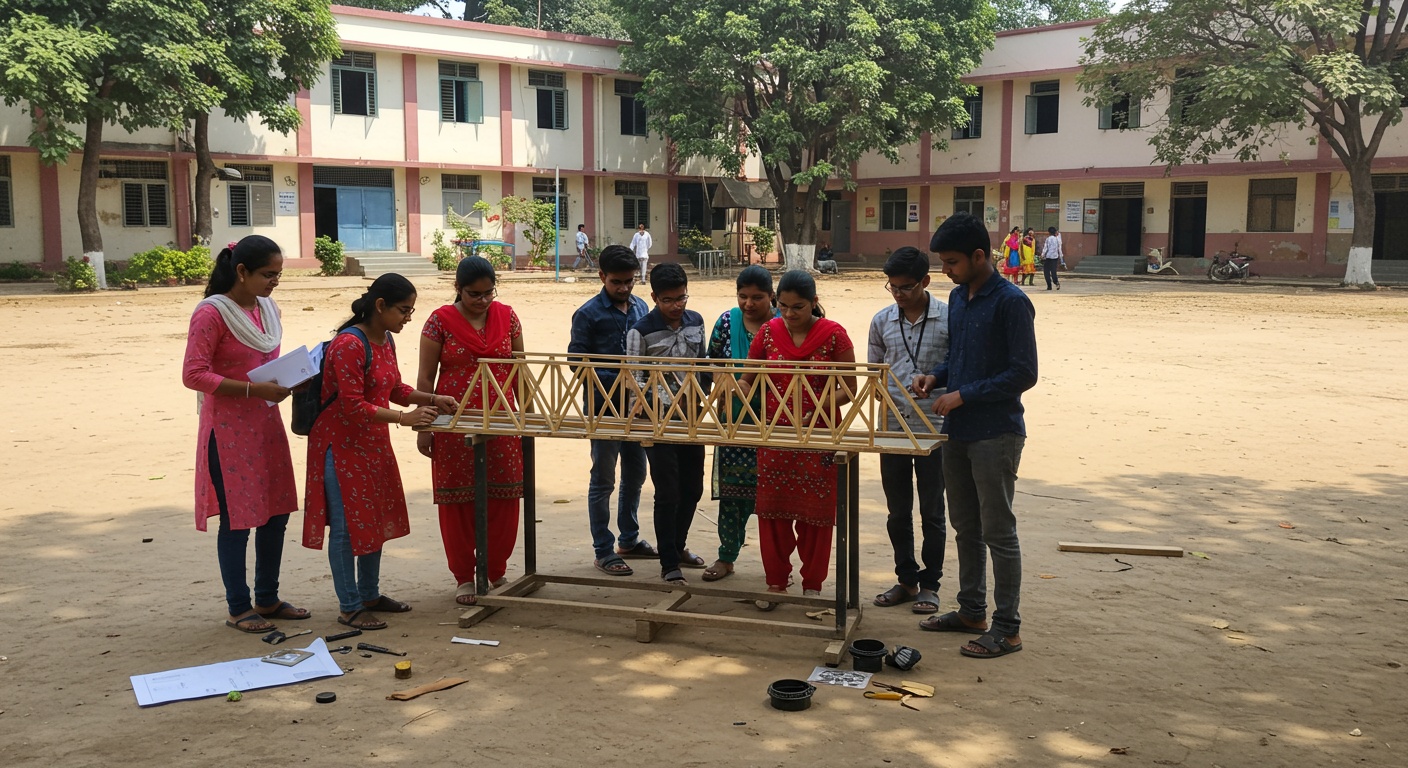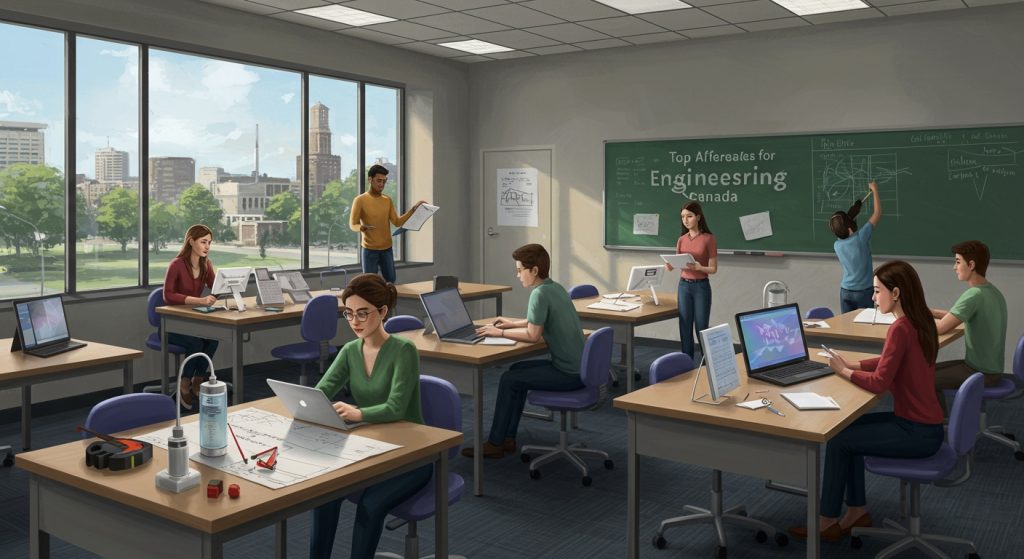India’s infrastructure is booming, creating immense opportunities for civil engineers. But the path to a successful career shouldn’t break the bank. Securing quality education is crucial, with recent advancements in sustainable construction and BIM demanding updated skill sets. This means finding institutions offering comprehensive curricula without exorbitant fees. We will explore affordable colleges across India that provide strong foundations in structural analysis, geotechnical engineering. Transportation planning. We will also consider factors like faculty expertise, industry collaborations. Placement records, ensuring aspiring engineers receive value-driven education and are ready to tackle the challenges of building a New India.

What is Civil Engineering and Why Choose It?
Civil Engineering is one of the oldest branches of Engineering, focusing on the design, construction. Maintenance of the built environment. This includes public works such as roads, bridges, canals, dams, airports, sewerage systems, pipelines, structural components of buildings. Railways. Civil Engineers are responsible for ensuring the safety, sustainability. Efficiency of these infrastructures.
Why choose Civil Engineering? The field offers a diverse range of career opportunities, from designing skyscrapers to managing large-scale construction projects. It’s a profession that directly impacts society, allowing you to contribute to the development and improvement of communities. Moreover, the demand for skilled Civil Engineers remains consistently high, providing job security and opportunities for advancement. The work can be intellectually stimulating, requiring problem-solving skills and innovative thinking.
Factors to Consider When Choosing an Affordable College
Selecting the right college is crucial for a successful career in Civil Engineering. Affordability is a significant factor. It shouldn’t be the only consideration. Here are some key aspects to evaluate:
- Accreditation: Ensure the college is accredited by the National Board of Accreditation (NBA) or other relevant bodies. Accreditation signifies that the program meets specific quality standards and is recognized by employers.
- Faculty: Research the faculty’s qualifications and experience. Look for professors with advanced degrees, research experience. Industry connections. A strong faculty can provide valuable mentorship and guidance.
- Infrastructure: Check the availability of well-equipped laboratories, workshops. Computer facilities. Access to modern equipment and software is essential for hands-on learning and practical training in Civil Engineering.
- Curriculum: Evaluate the curriculum’s relevance to industry needs. A good program should cover core subjects like structural analysis, geotechnical engineering, transportation engineering. Environmental engineering, as well as emerging areas like sustainable construction and BIM (Building data Modeling).
- Placement Record: Investigate the college’s placement record. A strong placement record indicates that the college has good industry connections and prepares students for successful careers.
- Location: Consider the location of the college. Colleges in or near major cities often offer better internship and job opportunities.
- Alumni Network: A strong alumni network can provide valuable career advice, mentorship. Job referrals.
Top Affordable Colleges in India for Civil Engineering
While affordability is subjective and depends on individual circumstances, the following colleges are generally considered to offer a good balance of quality education and reasonable fees. It is recommended to check the latest fee structures and admission criteria on the respective college websites.
- Government Engineering Colleges (GECs): GECs in various states typically offer the most affordable Engineering education. Examples include the College of Engineering, Pune (COEP), Government Engineering College, Thrissur. Delhi Technological University (DTU) (formerly Delhi College of Engineering). These institutions often have lower tuition fees and offer scholarships to meritorious students.
- National Institutes of Technology (NITs): While NITs are generally more expensive than GECs, they offer excellent Engineering programs at a relatively lower cost compared to private institutions. NITs like NIT Warangal, NIT Trichy. NIT Rourkela are highly regarded for their Civil Engineering departments.
- State Government Funded Institutions: Many state governments run Engineering colleges that offer affordable education. These colleges often have lower fees for students domiciled in the state. Examples include Jadavpur University in West Bengal and Anna University in Tamil Nadu.
- University Departments: Some universities offer Civil Engineering programs through their Engineering departments. These programs are often more affordable than those offered by private colleges. Examples include the Civil Engineering departments at IITs and other central universities.
- Private Engineering Colleges with Scholarships: Several private Engineering colleges offer scholarships and financial aid to deserving students. These scholarships can significantly reduce the cost of education. Research private colleges in your area and inquire about their scholarship programs.
Understanding the Civil Engineering Curriculum
A typical Civil Engineering curriculum covers a wide range of subjects, providing students with a comprehensive understanding of the field. The curriculum generally includes:
- Core Subjects:
- Structural Analysis: Analyzing the behavior of structures under different loads.
- Geotechnical Engineering: Studying the properties of soil and rock to design foundations and earthworks.
- Transportation Engineering: Planning, designing. Managing transportation systems.
- Environmental Engineering: Protecting the environment through the design of water treatment plants, wastewater treatment systems. Solid waste management facilities.
- Hydraulics and Water Resources Engineering: Studying the behavior of water and designing hydraulic structures such as dams and canals.
- Construction Management: Planning, organizing. Controlling construction projects.
- Mathematics and Basic Sciences: Calculus, differential equations, physics. Chemistry.
- Computer-Aided Design (CAD) and Building details Modeling (BIM): Using software to create and manage building designs.
- Laboratory Work: Conducting experiments and analyzing data in various Engineering laboratories.
- Field Work: Participating in site visits and construction projects to gain practical experience.
- Electives: Choosing specialized courses in areas of interest, such as sustainable construction, earthquake Engineering, or coastal Engineering.
Career Opportunities for Civil Engineering Graduates
A Civil Engineering degree opens doors to a wide range of career opportunities in both the public and private sectors. Some common career paths include:
- Construction Engineer: Managing construction projects, ensuring they are completed on time and within budget.
- Structural Engineer: Designing and analyzing the structural integrity of buildings, bridges. Other structures.
- Geotechnical Engineer: Investigating soil and rock conditions to design foundations and earthworks.
- Transportation Engineer: Planning, designing. Managing transportation systems, including roads, highways. Railways.
- Environmental Engineer: Designing and implementing solutions to environmental problems, such as water pollution and air pollution.
- Water Resources Engineer: Designing and managing water resources, including dams, canals. Irrigation systems.
- Project Manager: Overseeing all aspects of construction projects, from planning to completion.
- Consultant: Providing expert advice to clients on Civil Engineering projects.
- Government Engineer: Working for government agencies, such as the Public Works Department or the Ministry of Transportation.
The Importance of Internships and Practical Experience
Internships and practical experience are crucial for Civil Engineering students. They provide opportunities to apply classroom knowledge to real-world problems, develop practical skills. Gain valuable industry experience. Many colleges offer internship programs in collaboration with construction companies, consulting firms. Government agencies. Look for colleges that prioritize practical training and offer opportunities for students to work on live projects.
Real-World Example: A Civil Engineering student, Sarah, interned at a construction company during her summer break. She assisted in the construction of a high-rise building, working alongside experienced Engineers and construction workers. Through this internship, she gained hands-on experience in concrete mixing, steel reinforcement. Quality control. She also learned about project management principles and communication skills. This internship significantly enhanced her career prospects and helped her secure a job after graduation.
Affordable Civil Engineering: A Case Study
Consider the case of a student, Rohan, who aspired to become a Civil Engineer but had limited financial resources. He researched affordable colleges in his state and decided to enroll in a Government Engineering College. The tuition fees were significantly lower than those of private colleges. Rohan also secured a merit-based scholarship, which further reduced his expenses. He actively participated in extracurricular activities and networking events to enhance his skills and build connections. After graduation, he secured a job as a junior Civil Engineer at a construction company. Rohan’s story demonstrates that it is possible to pursue a successful career in Civil Engineering even with limited financial resources, by choosing an affordable college and maximizing available opportunities.
The Future of Civil Engineering and Emerging Technologies
The field of Civil Engineering is constantly evolving, with new technologies and innovations emerging all the time. Some of the key trends shaping the future of Civil Engineering include:
- Sustainable Construction: Using environmentally friendly materials and construction techniques to reduce the environmental impact of buildings and infrastructure.
- Building details Modeling (BIM): Using digital models to design, construct. Manage buildings and infrastructure.
- Smart Infrastructure: Integrating sensors and data analytics into infrastructure to improve performance and efficiency.
- 3D Printing: Using 3D printing technology to create building components and infrastructure elements.
- Artificial Intelligence (AI): Using AI to optimize construction processes and improve decision-making.
Civil Engineering is becoming more reliant on technology. Students who develop skills in these emerging technologies will be well-positioned for success in the future.
Financial Aid and Scholarship Opportunities
Numerous financial aid and scholarship opportunities are available to help students finance their Civil Engineering education. Some common sources of financial aid include:
- Government Scholarships: The central and state governments offer various scholarships to meritorious and economically disadvantaged students.
- Private Scholarships: Several private organizations and foundations offer scholarships to students pursuing Engineering degrees.
- College Scholarships: Many colleges offer scholarships to students based on academic merit or financial need.
- Educational Loans: Banks and financial institutions offer educational loans to help students finance their education.
It is essential to research and apply for all available financial aid and scholarship opportunities to reduce the cost of education. Many colleges also have financial aid offices that can provide guidance and assistance with the application process.
Conclusion
Embarking on a civil engineering career path in India doesn’t require breaking the bank. As we’ve explored, several affordable institutions offer quality education, setting the stage for a successful future. The key is to remember that academic rigor is just one piece of the puzzle. Actively seek internships, even unpaid ones, to gain practical experience. Network with alumni; their insights are invaluable. Looking ahead, India’s infrastructure boom promises ample opportunities for civil engineers. To stay competitive, consider specializing in emerging areas like sustainable construction or smart infrastructure. Don’t underestimate the power of continuous learning; online courses and industry certifications can significantly boost your skillset. The journey may have its challenges. With dedication and strategic planning, a fulfilling and prosperous career awaits. Believe in yourself, keep building. Engineer your success!
More Articles
Affordable Engineering Colleges in India with High Placement Rates
Top Universities in Germany for Mechanical Engineering
Affordable Colleges in India for details Technology Degrees
Best Value for Money: Affordable Colleges with Quality Education in Europe
FAQs
Okay, so which are some truly affordable colleges for Civil Engineering in India? I’m talking wallet-friendly!
Alright, budget-conscious buddy! Think along the lines of government colleges and state universities. Places like the College of Engineering, Pune (COEP), Jadavpur University in Kolkata. Some of the IITs (though competitive, fees are subsidized). Also, check out state engineering colleges in your own state; they often have significantly lower fees than private institutions. Do your homework on their reputations, though!
What kind of entrance exams do I need to ace to get into these affordable Civil Engineering programs?
Typically, you’re looking at the JEE Main for most government-funded colleges and IITs. Some states also have their own entrance exams for state engineering colleges. For example, WBJEE for West Bengal or MHT CET for Maharashtra. Keep an eye on the application deadlines!
Is ‘affordable’ the same as ‘compromised quality’? Will I get a decent education?
Not necessarily! Many of these government colleges have excellent faculty, strong alumni networks. Good lab facilities. The curriculum is often rigorous and well-structured. Don’t fall into the trap of thinking that a high price tag automatically equals a better education. Research the faculty and alumni success stories – that’s a better indicator.
What about scholarships or financial aid? Are there options to make it EVEN more affordable?
Absolutely! Look into national scholarship schemes like the Central Sector Scheme of Scholarship for College and University Students. Many colleges also offer merit-based or need-based scholarships. Check the AICTE website for various scholarship programs. Don’t hesitate to apply; every little bit helps!
Besides tuition fees, what other expenses should I budget for when considering an affordable Civil Engineering college?
Good question! Remember to factor in hostel fees (if you’re not a local), mess charges (food), books and stationery, exam fees. Any costs associated with projects or field trips. These can add up, so it’s essential to have a realistic estimate.
Are private colleges completely out of the question if I’m on a budget?
Not necessarily! Some private colleges offer scholarships based on merit or family income. It’s worth checking their websites and contacting their admissions offices directly to inquire about financial aid opportunities. Also, some private colleges might have lower fees than others, so do your research!
What’s the best way to figure out which affordable college is the right fit for me?
Do your research! Check out the college’s website, look at their rankings (but don’t rely solely on them!) , talk to current students or alumni if possible. Try to visit the campus if you can. Consider factors like location, curriculum, faculty expertise. Placement opportunities. The ‘best’ college is the one that aligns best with your goals and learning style.



